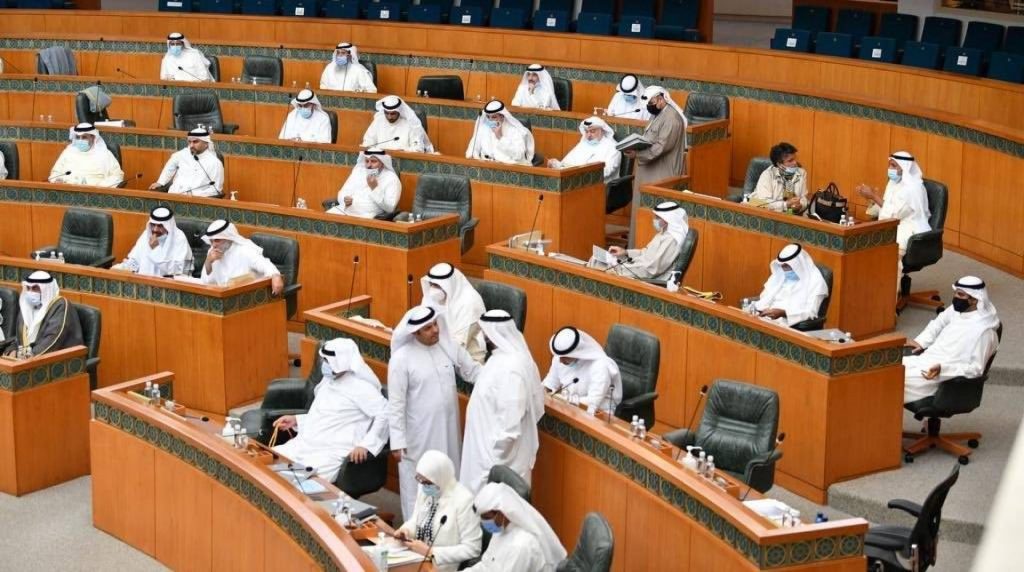The National Assembly approved the demographics law in two deliberations before referring it to the government, while the parliament rejected the bill regarding local banks to provide financing for clients affected by the repercussions of the coronavirus crisis, Al Qabas daily reported.
With regard to the demographic regulation law, the parliament approved an amendment requiring the Council of Ministers to outline a plan that includes regulations for expatriate workers within a year of the law’s approval.
The Council approved a number of amendments to the law, the most important of which is the removal of the second clause of Article 1, which sets quotas for expatriate workers of various nationalities according to a percentage and in proportion to the number of citizens, which is determined by the Council of Ministers based on the proposal of the competent minister.
Among the amendments approved by the Council was one which mentions a list of mechanisms to address the demographic imbalance within a year from the date this law comes into effect, taking into account the time needed for preparation of mechanisms that includes regulations to set a higher limit for expatriate workers. In addition, to allow for the Council of Ministers to issue annual executive decisions when the need arises to put the aforementioned regulation into effect, while providing the National Assembly with annual reports in this regard after the published regulation comes into effect.
The Council agreed to reformulate Article 4 to be as follows: When issuing the aforementioned bylaw, the following shall be taken into consideration:
1- The number of expatriates on the date of issuance of those decisions.
2- The national plan for comprehensive development, the timetables included in it, the requirements for expatriate workers, and the organized programs for professional qualifications in this plan
3- The various policies and plans set up to replace expatriate workers with nationals.
4- Graduates from education facilities and programs of the Public Authority for Applied Education and Training.
5- The extent to which the country’s health system will employ professionals coming from abroad to prevent and treat diseases and epidemics in the country.
6- Identifying some excluded groups in light of the needs of the development plan and labor market policies.
7- Defining policies to prohibit the transfer of foreign workers between different sectors. The council agreed to remove articles 5, 6, 7 and 8, which was as follows: Article (5): The following categories are excluded from the relative quotas, and from determining the numbers of workers hired from abroad: 1. Citizens of the Gulf Cooperation Council countries. 2- Spouses of Kuwaitis and their children 3. Heads and members of political missions delegated to the State of Kuwait and their families, and those working in these missions, on condition of reciprocity. 4. Military missions of countries with which Kuwait concludes security agreements, and assistive workers for these missions. 5. Air operators, pilots, their assistants and cabin crew. 6. The labor recruited from abroad involved in the implementation or takes part in completion of infrastructure projects or other economic development projects before being handed over to the public authority. 7. Domestic workers. 8. Medical and educational jobs and professions. 9. Any other category for which a decision is issued by the Council of Ministers based on the proposal of the competent Minister.
Article (6): The Council of Ministers determines the qualifications, specializations, professions, trades and various jobs of expats that are required in the labor market in the governmental, private and oil sectors. The competent minister shall take the necessary measures to rectify the status of the extra expatriate workers within five years from the date this law comes into force, and it will not be permitted to give a residency visa or renew the residency of an expat of these categories except in accordance with the rules and conditions specified by the executive regulations.
Article (7): The government provides training for Kuwaitis to be fully qualified for public jobs, various professions, trades and jobs in the private sector, and the government will put into place proper incentives to attract Kuwaiti youth to these jobs.
Article (8): Governmental agencies may not, in any case, agree to: 1. Transfer domestic worker visa to a work visa for the private sector or in the oil sector. 2. Convert visit visa to work residency visa 3. Transfer of visit visa to family visa. 4. Renew a residency visa of a recruited worker under a government contract after it has ended when he is not required for another government project.

